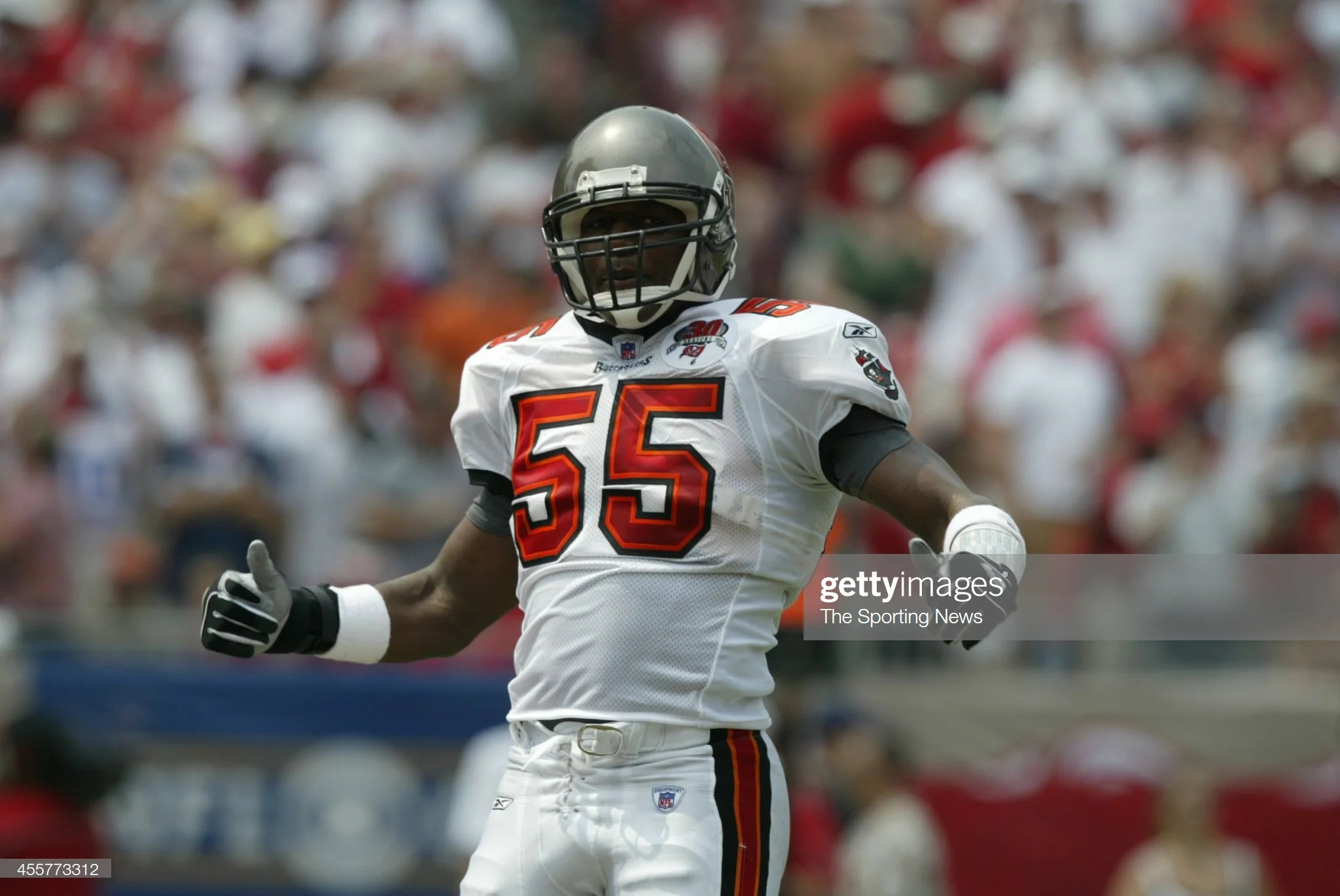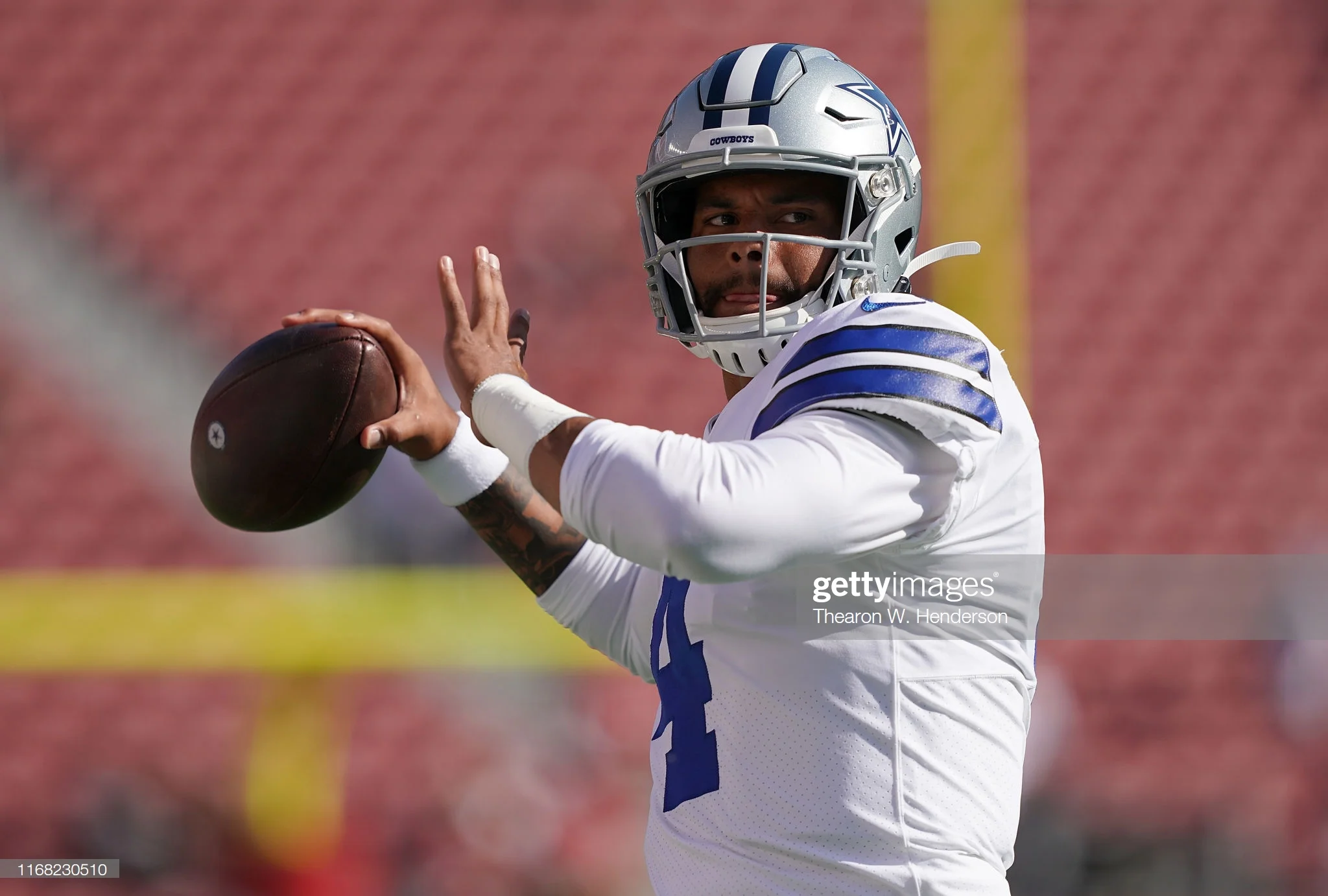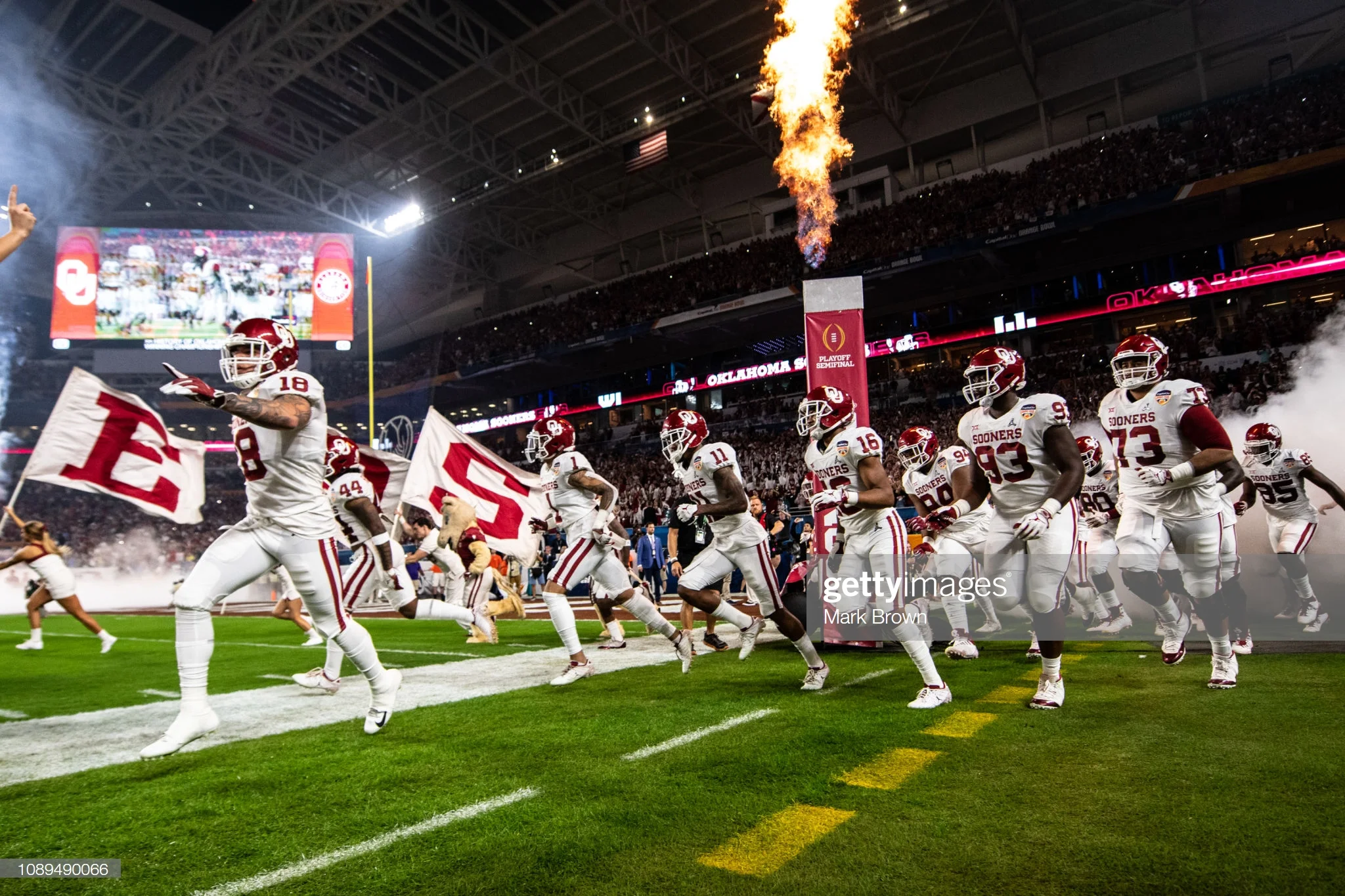Defensive players star, nicknames abound on Buccaneers all-time time
The Tampa Bay Buccaneers have been in existence for 43 seasons and made the playoffs 10 times. Included in those postseason appearances are three trips to the NFC Championship Game and a victory of the Raiders in Super Bowl XXXVII.
Tampa Bay has had its share of nicknames, with both the team and players boasting some creative monikers. The club suffered through 12 straight seasons with 10 or more losses, which led to the creamsicle-colored franchise being called the “Yuccaneers.” After a color change and a return to respectability, the Bucs were known as the “Pewter Pirates.”
While most of the nicknames are for offensive players, the real stars of Tampa Bay’s all-time team reside on the defense.
Head Coach: The greatest success came under Jon Gruden, who amassed a 57-55 record and led the team to three playoffs, including the Super Bowl XXXVII title. After a 12-4 mark in 2002 and wins over the 49ers and Eagles, the Buccaneers had five interceptions and five sacks against league MVP Rich Gannon, as Gruden’s new team beat his old team, the Raiders, 48-21. The club lost in the Wild Card round in 2005 and ’07 and hasn’t been back to the postseason since. Tony Dungy led Tampa Bay to a 54-42 record and four playoff appearances in six years. In 1999, the team lost to the Rams in the NFC Championship Game. Dungy was fired after back-to-back Wild Card losses, but he went on to win a Super Bowl with the Colts. Original coach John McKay stuck around even after the team lost its first 26 games, which is still a league record. Despite only posting a 44-88-1 record in nine seasons, McKay led the Buccaneers to their first three playoff appearances, including a run to the NFC Championship Game in 1979.
Quarterback: Brad Johnson only ranks sixth in team history with 10,940 yards and 64 touchdowns, but he led the team to their only title. “The Bull” went to the Pro Bowl in 2002, but his best numbers came the following year, when he threw for 3,811 yards and a career-high 26 scores. Jameis Winston is the club’s all-time leader with 88 touchdowns and is second with 14,628 yards. He made the Pro Bowl and the All-Rookie Team after throwing for 4,042 yards and 22 scores in 2015. “Famous Jameis” has three seasons with 3,000 or more passing yards. Vinny Testaverde tops the franchise list with 14,820 yards and ranks third with 77 touchdowns. He was a member of the 1987 All-Rookie Team and twice threw for more than 3,000 yards. Josh Freeman is second with 80 scoring passes and third with 13,534 yards, including 4,065 in 2012. Trent Dilfer made the Pro Bowl and led the Buccaneers to the playoffs in 1997.
Running Back/Fullback: James Wilder is the club’s all-time leader with 5,957 yards on the ground and 430 receptions, and is second with 37 rushing touchdowns. He made the Pro Bowl after amassing 1,544 yards and 13 scores in 1984. Fullback Mike Alstott ranks first with 58 touchdowns and second with 5,088 yards. “A-Train” was also a six-time Pro Bowler, a three-time All-Pro and a key player in the team’s run to the Super Bowl XXXVII title. The other half of the “WD-40” pairing, Warrick Dunn, was a two-time Pro Bowler and the Offensive Rookie of the Year in 1997. He is third with 4,986 yards and also had 306 catches out of the backfield. Due to his powerful style but small stature, Doug Martin was called the “Muscle Hamster,” (a nickname he hates). Martin had 4,633 yards, including 1,454 yards in his 2012 Pro Bowl rookie season and 1,402 in when he was an All-Pro in 2015. Carnell “Cadillac” Williams ran for 3,677 yards, including 1,178 in 2005, when he was named the Offensive Rookie of the Year. The first pick in the 1977 Draft, Ricky Bell amassed 3,057 yards, with 1,263 coming in the 1979 NFC title game season. Michael Pittman had 3,362 yards rushing and played in Super Bowl XXXVII as a rookie. Reggie Cobb ran for 3,061 yards, including 1,171 in 1992. Errict Rhett was a member of the 1994 All-Rookie Team and ran for 1,000 or more yards twice.
Wide Receiver: Current star Mike Evans tops the team list with 6,103 yards and 40 touchdowns, and ranks second with 395 receptions. He is a two-time Pro Bowler and had five 1,000-yard seasons, including a club-record 1,524 in 2018. Mark Carrier is second with 5,018 yards and third with 321 catches. He was a Pro Bowler in 1989, when he had 1,422 yards. Kevin House ranks third with 4,928 yards and 31 touchdowns. Vincent Jackson totaled 4,326 yards, including three seasons with 1,000 or more. He went to the Pro Bowl after amassing 1,384 yards in 2012. Joey Galloway also had three 1,000-yard seasons and 3,912 in total. He totaled 1,287 yards and 10 touchdowns in 2005. Keyshawn Johnson totaled 3,828 yards in four seasons and was the team’s top target in the Super Bowl XXXVII season. He had two 1,000-yard seasons and went to the Pro Bowl in 2001. Mike Williams made the All-Rookie Team after scoring 11 times in 2010.
Tight End: Jimmy Giles ranks second in team history with 34 touchdowns, and he tops the position with 279 receptions and 4,300 yards. He was a four-time Pro Bowler and played in the 1979 NFC Championship Game. Ron Hall took over for Giles and totaled 2,422 yards in seven years. Before his drug and legal troubles, Kellen Winslow II had quite a bit of potential. He ranks third among tight ends with 2,377 yards.
Tackle: Paul Gruber started his career as a member of the 1988 All-Rookie Team and ended it by playing in the 1999 NFC Championship Game. In between, he started 183 games for the Buccaneers. Donald Penn played 112 games in seven seasons and made the Pro Bowl in 2010. Demar Dotson has played in 115 games over nine years. Fellow current starter Donovan Smith was a member of the 2015 All-Rookie Team. Kenyatta Walker played in Super Bowl XXXVII and was a member of the 2001 All-Rookie Team. Dave Reavis and Charley Hannah started in the 1979 NFC Championship Game.
Guard: Davin Joseph played in 100 games and appeared in two Pro Bowls over eight seasons. Logan Mankins and Hall of Famer Randall McDaniel both only played two seasons in Tampa Bay, but both made the Pro Bowl (McDaniel in 2000, Mankins in 2015). Jeremy Zuttah split six seasons between left guard and center. He played 90 games and made the All-Rookie Team in 2007. Ian Beckles started 97 games in the early 1990s. Cosey Coleman played in 71 games, as well as Super Bowl XXXVII. Current guard Ali Marpet was a member of the 2015 All-Rookie Team and has started 56 games.
Center: Tony Mayberry was a three-time Pro Bowler who played 160 games over 10 seasons and appeared in the 1999 NFC title game. Steve Wilson also called Tampa Bay home for 10 years. He appeared in 125 games and the 1979 NFC Championship Game. Jeff Christy spent three seasons with the Buccaneers. He played in Super Bowl XXXVII and was a Pro Bowler in 2000. Randy Grimes appeared in 118 games in nine years.
Defensive End: Hall of Famer Lee Roy Selmon was a six-time Pro Bowler and both an All-Pro and the Defensive Player of the Year in 1979, which ended with his team in the NFC Championship Game. Selmon had 23 sacks, with 11 in 1983. Simeon Rice ranks second in team history with 69½ sacks and 19 forced fumbles. He is a two-time Pro Bowler and an All-Pro in the team’s 2002 Super Bowl season. Chidi Ahanotu is fourth on the team list with 34½ sacks, including 10 in 1997. He started in the NFC Championship Game two years later. Rice’s teammate in Super Bowl XXXVII, Greg Spires, had 26 sacks, with eight coming in 2004. Marcus Jones amassed 13 sacks in 2000 and 24 overall in six seasons. John Cannon played in 122 games over nine years and totaled 22 sacks.
Defensive Tackle: Hall of Famer Warren Sapp was a star during the period when the team went to the 1999 NFC title game and Super Bowl XXXVII. He is the team’s all-time leader with 77 sacks, including 16½ in 2000. He was the Defensive Player of the Year in 1999 after registering 12½ sacks and four forced fumbles. Sapp was also a seven-time Pro Bowler and a four-time All-Pro. Gerald McCoy was a six-time Pro Bowler and a 2013 All-Pro. He amassed 54½ sacks (third-most in franchise history) before signing with Carolina as a free agent for 2019. Brad Culpepper’s 33 sacks rank fifth, and he had nine in 1998. He played in the NFC Championship Game the following year. David Logan started in the 1979 conference title game and had 28½ sacks over eight seasons, including 9½ in 1983. Anthony McFarland started opposite Sapp in the Super Bowl and had 20 sacks in eight years. Santana Dotson made the All-Rookie Team after a 10-sack season in 1992. Dave Pear was an original Buccaneer who made the Pro Bowl in 1978.
Outside Linebacker: Hall of Famer Derrick Brooks is the all-time franchise leader with 1,710 tackles, including 12 seasons with 100 or more and a league-leading 158 in 1998. The Super Bowl XXXVII participant also tops the team list with 24 forced fumbles, picked off 25 passes and returned six for touchdowns. “The Sheriff” was an 11-time Pro Bowler, a five-time All-Pro, the 2000 Walter Payton Man of the Year Award winner and the 2002 Defensive Player of the Year. Lavonte David ranks fourth in team history with 884 tackles, with six seasons of 100 or more. The 2013 All-Pro and 2015 Pro Bowler also had 21½ sacks, 18 forced fumbles, and 13 fumble recoveries. Broderick Thomas made 461 tackles during his five years in Tampa Bay, including 174 in 1991. “The Sandman” also had 11 sacks that year and 26½ overall. Hugh Green was a two-time Pro Bowler over five seasons in the early 1980s. Dave Lewis, Richard Wood, and Cecil Johnson all started in the 1979 NFC Championship Game. Lewis made the Pro Bowl in 1980. Wood was known as “Batman” because he drew the superhero logo on his game gloves.
Middle Linebacker: Hardy Nickerson had six seasons with 100 or more tackles and ranks third on the team list with 926, including an NFL-high 214 in 1993. “Hardware” was a five-time Pro Bowler, a two-time All-Pro and a participant in the 1999 NFC Championship Game. Sheldon Quarles was a Pro Bowler in the 2002 Super Bowl season. He played in 148 games and made 682 tackles in 10 years. Kwon Alexander was a member of the 2015 All-Rookie Team and a Pro Bowler two years later. Barrett Ruud had 585 tackles in six years. Lee Roy’s brother, Dewey Selmon, played in the 1979 NFC title game. Scot Bradley played in 114 games over eight seasons.
Cornerback: Ronde Barber is the all-time franchise leader with 47 interceptions and eight touchdowns, and he ranks second with 1,231 tackles. The Super Bowl XXXVII starter was selected to five Pro Bowls and three All-Pro teams, and he led the NFL with 10 picks in 2001. Donnie Abraham ranks second with 31 interceptions. He played in the 1999 NFC Championship Game and made the Pro Bowl the following season. Mike Washington is fourth with 28 interceptions, with six coming in 1981. He played in the 1979 NFC title game. Brian Kelly picked off 22 passes in 10 years and appeared in Super Bowl XXXVII. Darrell Revis made the Pro Bowl in 2013. Ricky Reynolds played 105 games and had 17 interceptions. Aqib Talib picked off 18 passes in five seasons.
Safety: John Lynch was a five-time Pro Bowler and a two-time All-Pro who helped lead the team to its only championship. “The Closer” had 23 interceptions and 787 tackles in 11 seasons. Cedric Brown ranks third in team history with 29 picks, with eight in 1981, and he played in the 1979 NFC Championship Game. Dexter Jackson only picked off eight passes in the regular season, but had two interceptions to earn Super Bowl XXXVII MVP honors. Mark Cotney started opposite Brown and had 17 picks in eight seasons.
Kicker: Martin Gramatica is the top scorer in franchise history with 592 points, including three 100-yard seasons. The 2000 Pro Bowler and Super Bowl XXXVII participant earned the nickname “Automatica” for his accuracy. Michael Husted ranks second with 502 points. Matt Bryant had a team-record 131 points in 2008 and 416 overall.
Punter: Josh Bidwell was a 2005 Pro Bowler, ranks second in team history with a 44.0-yard average and has five seasons with 3,000 or more yards. Mark Royals played in the 1999 NFC Championship Game and had 3,000-plus yards four times.
Returners: Aaron Stecker and Karl Williams top the team lists and played in Super Bowl XXXVII. Stecker had 2,376 kickoff return yards. Williams, known as “The Truth,” had 2,279 punt return yards and a team-record five touchdowns. Reidel Anthony, a member of the 1997 All-Rookie Team, had 2,232 kick return yards, including 1,118 in 1998. Clifton Smith was an All-Rookie Team member and a Pro Bowler in 2008 after having both kick and punt return touchdowns. Danny Reece ranks second with 1,554 punt return yards and played in the 1979 NFC title game. Michael Spurlock had 1,776 kickoff return yards and two scores, including the first kick return touchdown in team history in 2007.
Special Teams: Dave Moore had 184 receptions and 24 touchdowns as a tight end, and he made the Pro Bowl in 2007 as a long snapper. Linebacker and coverage team player Jeff Gooch played in 105 games over six seasons.
Next: Arizona Cardinals
-By: Kevin Rakas







